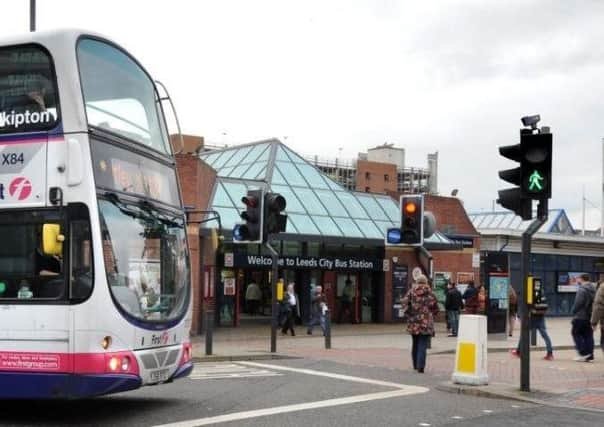The North's '˜unreliable' public transport is '˜holding back' poorer families, report claims


The York-based Joseph Rowntree Foundation (JRF) has called for a redesign of the Government’s transport, housing and economic policy, after its research revealed public transport was “holding back” low-income families from achieving a better standard of living.
Transport was consistently highlighted as a “significant barrier” to work once the trade-off between the cost, reliability and speed of local public transport; and the prospect of low-wage, insecure work was considered, the study by researchers from the University of Sheffield and Sheffield Hallam University found.
Advertisement
Hide AdAdvertisement
Hide AdIt examined six areas in the North of England and Scotland, including Seacroft in Leeds and Dewsbury Moor in Kirklees, and found the unreliability of local buses risked creating ‘cut-off commuter zones’ where people were unable to consistently guarantee punctuality when travelling to work; and that even when residents were willing to commute long distances, reliable services were not always available.
A “disconnect” between the location of jobs and low-income neighbourhoods was also constraining people’s ability to seize job opportunities when they arise, with jobs for low-paid, unskilled and manual work tending to be based at out-of-town, peripheral locations poorly served by public transport.
Director of the Centre for Regional Economic and Social Research at Sheffield Hallam University, Ed Ferrari, said: “Buses are the backbone of local public transport in Britain and the key to employment and training opportunities for many. But problems with high fares, poor coordination between different providers and services, and lack of reliability seriously hamper the ability of low-income groups to commute to more distant jobs.”
Action by the Government, combined and local authorities and transport bodies on bus franchising, planning and policy is needed to overcome transport barriers to employment, the JRF said.
Advertisement
Hide AdAdvertisement
Hide AdActing head of policy and research, Brian Robson, said: “The experiences of low-income residents make it abundantly clear that we must properly invest in transport networks within cities not just between them.
“With more powers being devolved to city and local leaders, now is the time to redesign our transport, housing and economic policies so that everyone can get into work and progress in their careers.”
In Dewsbury Moor, none of the nearby major employment centres were reachable within an hour by bus.
Labour MP for Dewsbury, Paula Sherriff said the report “starkly exposes the social cost of reduced, unreliable services and rip-off fares”
Advertisement
Hide AdAdvertisement
Hide AdShe said bus fares had risen three times faster than wages since 2010, and said bus fares, routes and timetables needed to be placed back under local authority control.
“It’s time for communities to be put ahead of the interests of private profit,” she added.
Labour’s Leeds East MP Richard Burgon, whose constituency includes Seacroft, said: “Too much of our transport system is run to fill the pockets of fat cats rather than to serve the needs of our communities.
“When profits rather than public service are put first it’s no surprise it’s the public that suffers.”
Advertisement
Hide AdAdvertisement
Hide AdWest Yorkshire Combined Authority said it spends £17m a year to ensure non-profitable bus services are provided and is set to invest £195m this year on transport and economic schemes designed “to support inclusive economic growth, new jobs, better access to training and skills”.
Coun Kim Groves, chair of the authority’s transport committee said it would continue to push bus companies to provide affordable fares.
She added: “As this new report makes clear, there is no simple solution, but transport investment is vital to resolving these failings and a rebalancing of the funding for our region is urgently required.”
A Department for Transport spokesperson said it was spending more than £13bn over the next two years to “transform” transport across the North.
Advertisement
Hide AdAdvertisement
Hide AdHe added: “We have also given councils extra powers to work in partnership with bus companies to improve the services passengers expect and deserve.
“We recognise that buses are vital in connecting people, homes and businesses, and we provide around £250 million every year to support these services up and down the country.”